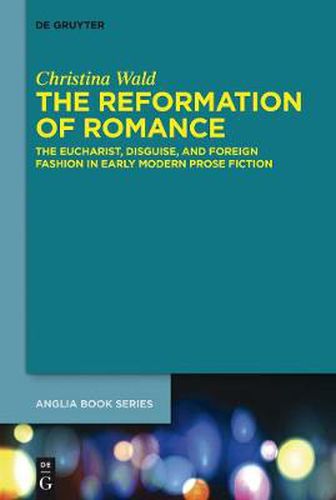Readings Newsletter
Become a Readings Member to make your shopping experience even easier.
Sign in or sign up for free!
You’re not far away from qualifying for FREE standard shipping within Australia
You’ve qualified for FREE standard shipping within Australia
The cart is loading…






This title is printed to order. This book may have been self-published. If so, we cannot guarantee the quality of the content. In the main most books will have gone through the editing process however some may not. We therefore suggest that you be aware of this before ordering this book. If in doubt check either the author or publisher’s details as we are unable to accept any returns unless they are faulty. Please contact us if you have any questions.
Thisstudy takes a fresh look at the abundant scenarios of disguise in early modern prose fiction and suggests reading them in the light of the contemporary religio-political developments. More specifically, it argues that Elizabethan narratives adopt aspects of the heated Eucharist debate during the Reformation, including officially renounced notions like transubstantiation, to negotiate culturally pressing concerns regarding identity change.
Drawing on the rich field of research on the adaptation of pre-Reformation concerns in Anglican England, the book traces a cross-fertilisation between the Reformation and the literary mode of romance. The study brings together topics which are currently being strongly debated in early modern studies: the turn to religion, a renewed interest in aesthetics, and a growing engagement with prose fiction.
Narratives which are discussed in detail are William Baldwin’s Beware the Cat, Robert Greene’s Pandosto and Menaphon, Philip Sidney’s Old and New Arcadia, and Thomas Lodge’s Rosalynd and A Margarite of America, George Gascoigne’s Steele Glas, John Lyly’s Euphues: An Anatomy of Wit and Euphues and his England, Barnabe Riche’s Farewell, Greene’s A Quip for an Upstart Courtier, and Thomas Nashe’s The Unfortunate Traveller.
$9.00 standard shipping within Australia
FREE standard shipping within Australia for orders over $100.00
Express & International shipping calculated at checkout
This title is printed to order. This book may have been self-published. If so, we cannot guarantee the quality of the content. In the main most books will have gone through the editing process however some may not. We therefore suggest that you be aware of this before ordering this book. If in doubt check either the author or publisher’s details as we are unable to accept any returns unless they are faulty. Please contact us if you have any questions.
Thisstudy takes a fresh look at the abundant scenarios of disguise in early modern prose fiction and suggests reading them in the light of the contemporary religio-political developments. More specifically, it argues that Elizabethan narratives adopt aspects of the heated Eucharist debate during the Reformation, including officially renounced notions like transubstantiation, to negotiate culturally pressing concerns regarding identity change.
Drawing on the rich field of research on the adaptation of pre-Reformation concerns in Anglican England, the book traces a cross-fertilisation between the Reformation and the literary mode of romance. The study brings together topics which are currently being strongly debated in early modern studies: the turn to religion, a renewed interest in aesthetics, and a growing engagement with prose fiction.
Narratives which are discussed in detail are William Baldwin’s Beware the Cat, Robert Greene’s Pandosto and Menaphon, Philip Sidney’s Old and New Arcadia, and Thomas Lodge’s Rosalynd and A Margarite of America, George Gascoigne’s Steele Glas, John Lyly’s Euphues: An Anatomy of Wit and Euphues and his England, Barnabe Riche’s Farewell, Greene’s A Quip for an Upstart Courtier, and Thomas Nashe’s The Unfortunate Traveller.